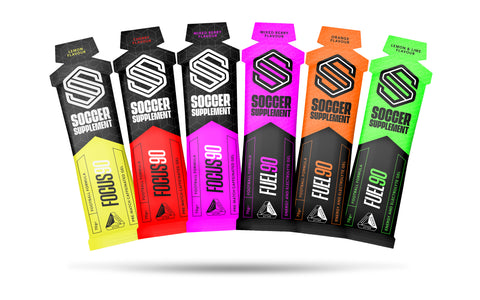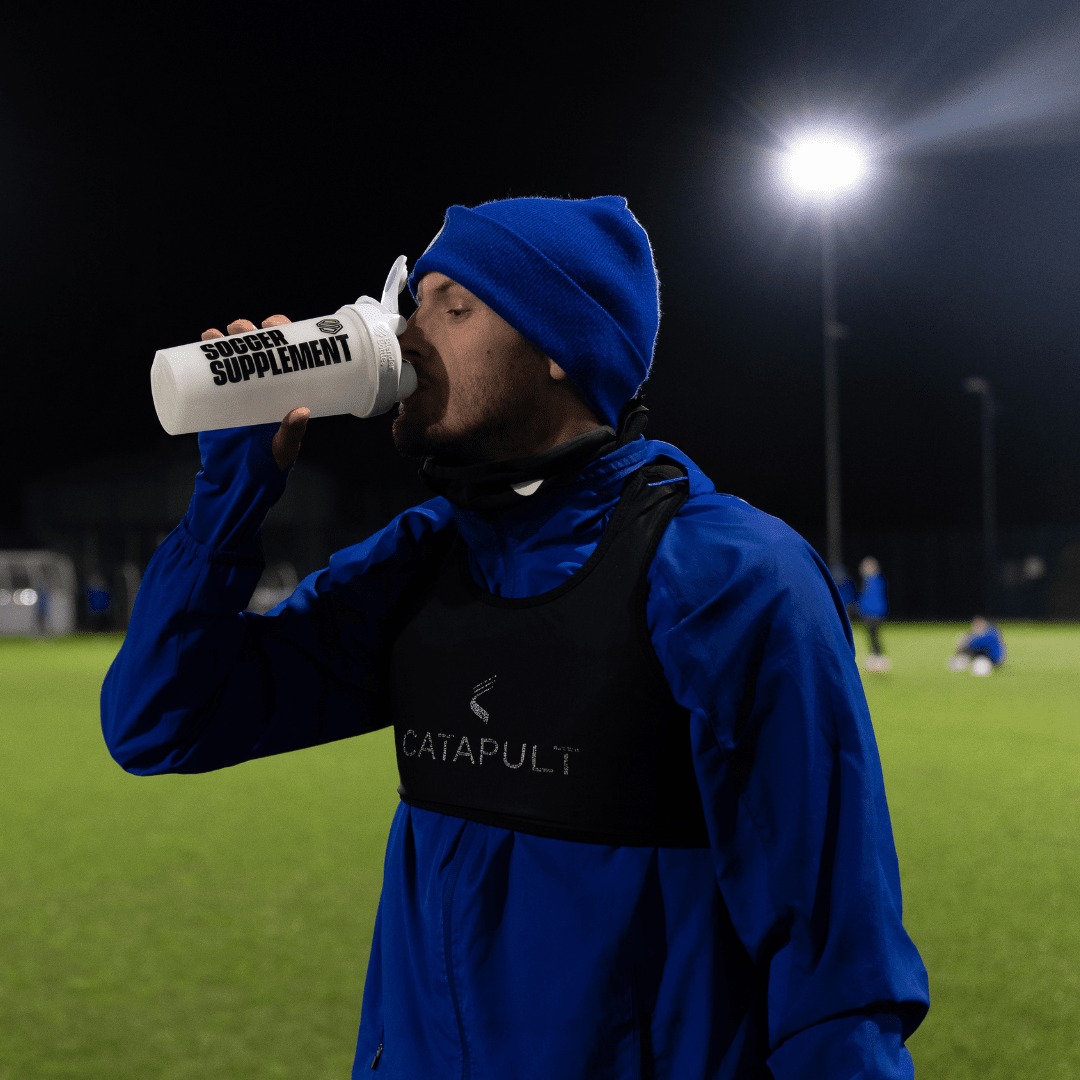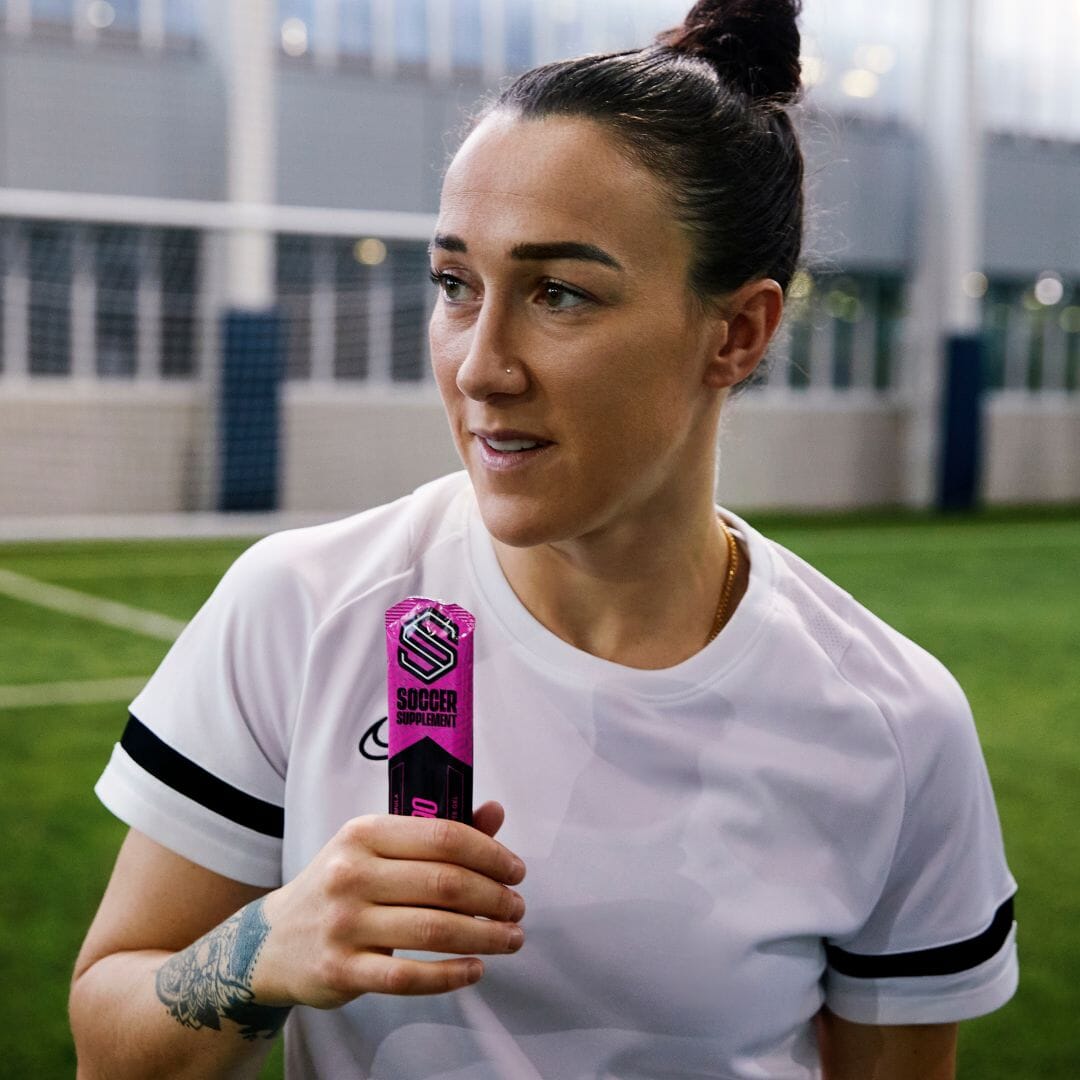We caught up with West Ham nutritionist Matt Jones to talk about the role nutrition plays in the squad, and how diet and supplementation can help footballers from the Premier League® to the Sunday league prepare for, fuel and recover from their matches. Read on to find out more about nutrition in top flight football, so that you can apply the same principles to your game.
To kick us off, how significant is good nutrition at keeping a team like West Ham performing at the highest level?
As a sports nutritionist I’m obviously incredibly biased, but a good diet is absolutely critical to ensuring our players can compete at the very highest level. It sounds ridiculous, but the food we eat has the ability to impact every single cell in our body, it can influence us physically and mentally, so getting it right is so important. Obviously fuelling and recovering get much of the attention, but the critical elements that people often overlook is ensuring that players are properly and consistently hydrated, so that they are able to concentrate and fully focus during training sessions. These are the details that make the difference, not merely fuelling well and recovering after games on the weekend. The modern professional game is so competitive that details such as this, no matter how fine they may seem, make a huge difference.
What role do supplements play in a club’s nutrition plan?
We have a strong ‘food first, supplement second’ policy at the club. So wherever possible we will look to obtain nutrients from fresh, minimally processed foods. But where that is not possible we will supplement. As an example there are very few foods or fluids that can provide the required quantity of vitamin D to maintain adequate levels through the winter months, where vitamin D deficiency becomes common, so the addition of supplements is required. Supplements also offer practical solutions, so after games or training when players appetites may often be impaired we will utilise fluid forms of carbohydrate and protein, such as Recover90®, to ensure players meet the nutrient requirements.
Why do West Ham choose Soccer Supplement® as the club’s official supplements partner?
The supplement industry continues to grow, we are inundated with different supplement options. But we chose to partner with Soccer Supplement because we wholeheartedly believe in the products they provide. The simplicity of the range of products they offer fits perfectly with our nutrition philosophy too. Other companies launch new products most years, whereas Soccer Supplement invest their efforts and resources into ensuring that their product line is the best it can possibly be, adjusting packaging and dosages to ensure they are at the forefront of football science research. They offer products that help us solve our performance problems. They taste great, the players love them and the staff trust them.

“Soccer Supplement® invest their efforts and resources into ensuring that their product line is the best it can possibly be… they are at the forefront of football science research."
How do you ensure that players are properly fuelled to survive a big 90 minutes?
In truth preparation for game day occurs 36-24 hours prior to kick off. Players adjust their diet slightly in the days prior to games to ensure they are fully fuelled and hydrated, with an increase in dietary nitrates. On the day of the game players each have their own habits and preferences, but meals are rich in carbohydrate, low in fat and fibre. Pretty simple meals like sea bass and rice, chicken, pasta and tomato sauce, poached eggs on toast, supplemented with fruit juices and high carbohydrate snacks like ripe bananas, rice cakes and homemade energy balls. Each player will have their own, personal fuel card during the game where recommendations are made specific to them as an individual, taking into account personal preferences and positional requirements. These fuel cards feature Focus90® and Fuel90® gels, Hydrate90® tablets and drinks, alongside caffeine gum and wholefood snacks for substitutes.
In your eyes, what is the ideal pre-match meal and when should that be eaten?
The ideal pre-match meal would provide roughly 2 grams of carbohydrate per kilogram of body weight (simply multiply your body weight by 2 to get target carbohydrate intake) for outfield players and 1.5 grams per kilogram for goalkeepers. It would be low in fat and fibre to ensure the nutrients are digested easily and players go into the game feeling light and fresh. It would contain a small amount of protein, to stabilise blood sugar and optimise neurotransmitters in the brain. We are fortunate to have an incredible performance chef that makes this potentially boring meal extremely tasty and inviting, our players favourites include sea bass with rice and a fresh tomato salsa, chicken, pasta and a tomato sauce, and poached eggs on toast. Carbohydrate intake is also supplemented with fruit juices such as apple juice and ripe bananas.
How do different players vary in their nutritional needs? For example, would Lukasz Fabianski and Michail Antonio require the same pre-match nutrition?
Each player will have specific plans to follow on game day, this will vary depending on playing position and personal preferences. Goalkeepers typically cover 4 – 5 km during a game, while Mic will cover 10 km at much higher speeds. This obviously changes their nutritional requirements considerably. Mic’s performance is likely limited by glycogen depletion (running out of fuel) or dehydration, while Lukasz’s performance is likely limited by a dip in focus or concentration. So our recommendations for Mic are geared toward being fully fuelled and hydrated, prior to and during the game, while Lukasz goal is to maintain focus and altertness with a strategy that promotes energy stabilisation for 90+ minutes.
Can you run us through which Soccer Supplement products the players use before a match and why?
Each player will have a slightly different plan, but a typical plan for a midfielder covering large distances at high intensities looks something like this:
-
Before warm up – 250 ml of Hydrate90®
-
Before kick off – 250 ml of Hydrate90®, Focus90® gel
-
Half time – 500 ml Hydrate90®, Fuel90® gel
-
Second half (breaks in play) – sips of Hydrate90® and Fuel90® gel if necessary
This is refined over time, taking into account personal preferences for flavour and also positional requirements. A goalkeepers plan would obviously be considerably different.
How does supplementation at half time differ from pre-match supplementation?
Thanks to some really insightful research from a research group in Leeds, we now know that timing of nutrient intake is critically important at half time. The research showed that consuming high glycemic index (fast fuels) carbohydrates as soon as you get into the changing room at half time may result in rebound hypolglycemia, where blood sugar falls to suboptimal levels, by the time you walk back out for the second half. So we have pretty structured half time plans, with set timings for rehydrating, refocusing and refuelling. But in regards to nutrient intake, the objectives are the same really, carbohydrate, fluids and electrolytes and the target dosages are pretty similar too to be honest.
What is the role of Soccer Supplement in recovery after a tough match or training session?
Recover90® plays a significant part in our post match recovery, although immediate (phase 1) recovery, as soon as players walk off the pitch involves Hydrate90® again as this is the most palatable drink. As players return to the changing room they will be provided with various foods, snacks and Recover90® with milk and creatine monohydrate. Then prior to bed they will consume Whey90® and milk to support the overnight repair of muscle.
“Soccer Supplement offer products that help us solve our performance problems. They taste great, the players love them and the staff trust them."
How would you describe the importance of hydration in a player’s nutrition plan?
Hydration is fundamental. Our body is 60 – 65% water, any deviation in that body fluid level has consequences to our health and performance. It’s also probably the easiest thing to maintain and most inexcusable element of nutrition to get wrong. Staying hydrated is a habit that all of our players have. Waking up each morning, their first objective is to rehydrate. Maintaining hydration during games with sufficient fluid and electrolytes is also incredibly important, we calculate individual sweat rates prior to each season and provide education to each individual to ensure they know how much they need to drink to stay hydrated, every player is different.
How do match days and rest days differ in terms of a player’s nutritional needs?
Nutritional periodisation is the scientific term used to describe daily nutrition planning. We encourage our players to adjust their daily diet to reflect the days demands. Match days are much more demanding, energy requirements are close to 3500 kcal, carbohydrate requirements increase considerably as the players move more and at higher intensities, to be honest everything changes. On non-training days energy requirements are lower, perhaps around 2600 kcal, carbohydrate requirements are lower, we try and increase larger intakes of build (protein) and boost (fruit, vegetables, healthy fats) foods on these days too, perhaps with a greater emphasis on recovery on these days also. We also try and periodise – or plan – the players diets within the day too, so meal by meal, rather than just day by day. It’s certainly much more complex than just breakfast, lunch, dinner and done.
What are the main challenges faced by the nutrition and medical teams?
In a team sport managing and meeting individual needs is most definitely the most challenging part. Everyone is unique, everyone has different requirements, different preferences, different issues to address. But we can only offer one menu, with a handful of options each day, so then it falls down to education and information, to ensure that each player is able to make an informed decision and meet their individual needs.
Finally, how should a keen Sunday league player approach their own match nutrition?
To be honest, no matter what level you play at nutrition is and always will play a critical part in your performance. So much of what I have discussed here also applies to a Sunday league player. I would also argue that in Sunday league the margins are so much bigger that a better diet could lead to a significant improvement, whereas in the Premier League we are talking about 0.5% differences.
Click here to shop our range of Elite Football Supplements.













